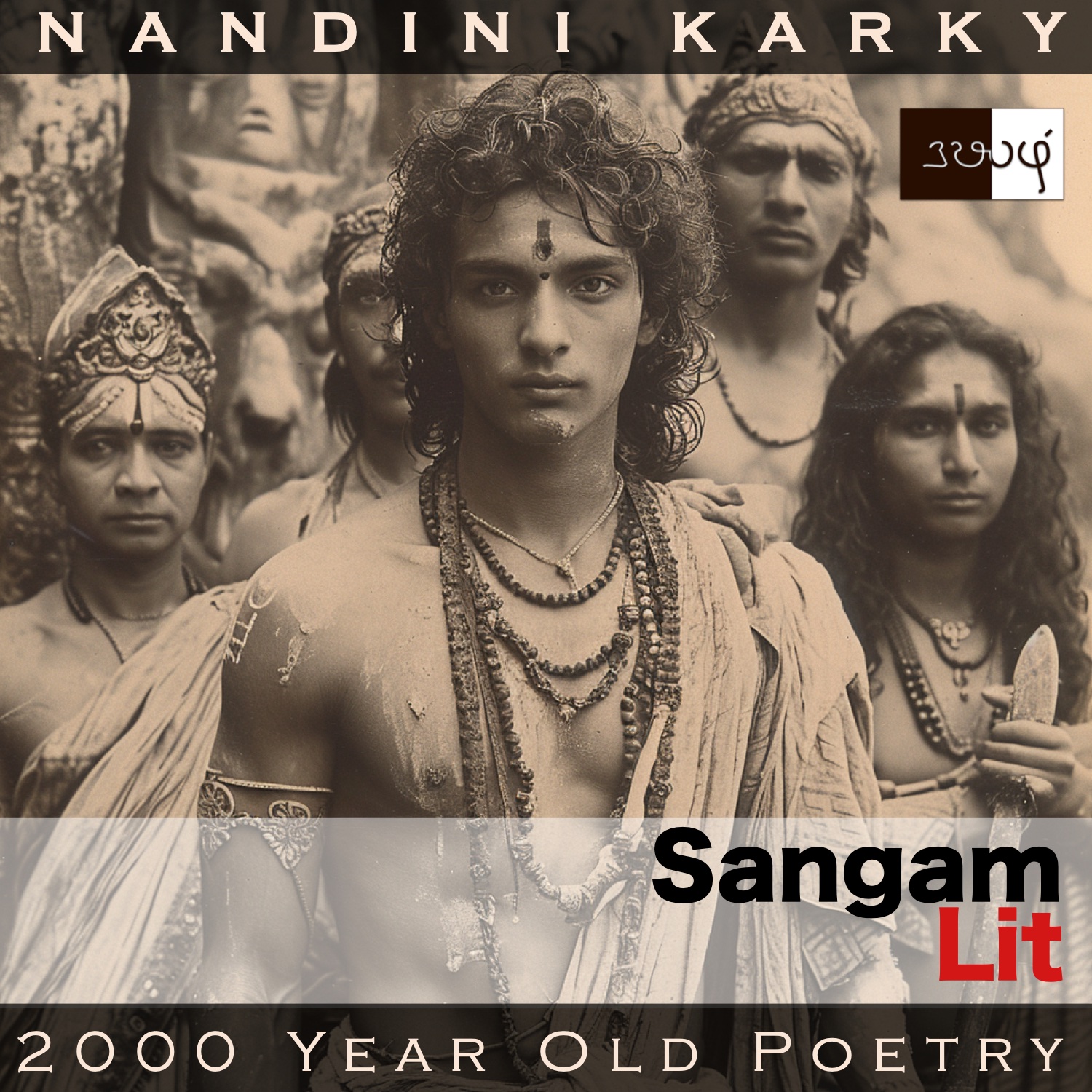Podcast: Play in new window | Download
Subscribe: Apple Podcasts | Spotify | Amazon Music | Android | iHeartRadio | Email | TuneIn | RSS | More
In this episode, we perceive the duties of the members of society, as portrayed in Sangam Literary work, Puranaanooru 312, penned by the poet Ponmudiyaar. The verse is situated in the category of ‘Vaagai Thinai’ or ‘Victory’ and presents a mother’s eye view of her son’s life.

ஈன்று புறந்தருதல் என் தலைக் கடனே;
சான்றோன் ஆக்குதல் தந்தைக்குக் கடனே;
வேல் வடித்துக் கொடுத்தல் கொல்லற்குக் கடனே;
நன்னடை நல்கல் வேந்தற்குக் கடனே,
ஒளிறு வாள் அருஞ் சமம் முருக்கி,
களிறு எறிந்து பெயர்தல் காளைக்குக் கடனே.
A simple but profound song informing us about the roles in society during Sangam times. The poet’s words can be translated as follows:
“To give birth to him and to raise him is my foremost duty; To make him a scholar is his father’s duty; To render unto him the best of spears is the duty of the blacksmith; To show the path of virtue and goodness is the duty of the king; And finally, to flash his shining sword in the battlefront, kill elephants and return successfully is the duty of that bull-like young man!”
Time to delve into the nuances. The poet talks in the voice of a mother who declares her own duty in life is to give birth and raise a son with health and strength. Next, it’s the duty of a father to educate that son and make him wise and knowledgeable, she continues. This is followed by the duty of a blacksmith to present him with the sharpest of weapons that will aid him in his mission. Next, it’s the duty of the king to show the young man, the right path of virtue. And finally, what should the young man himself take as his duty? That is to march on to the battlefield with his sword flashing and to kill and heap the enemy elephants and return with victory, the poet concludes in the voice of the mother.
A simplistic view of societal roles indeed but we can gather insights about how the mother takes on responsibility for the physical well-being of the child and the father for the mental growth of the child in those times. Next, is the role of the blacksmith to render his expertise and help the young man by giving him the best possible support in the form of battle weapons that will not let him down. Also interesting is the role of the king, which is to show the path of goodness to this young man. By that, the poet implies the king should choose his fights wisely and always be a model of virtue to all the young people, who look up to him. And finally, it’s up to the young man to use the health endowed by his parents, the material aids rendered by the blacksmith, and the noble virtues illustrated by the king and use it all to bring glory and victory to them all.
Translating those roles to the present, we can see how it’s true that parents are responsible for the health and education of children. That blacksmith then, now becomes the entire professional world giving the child the varied tools of the modern world. It’s the political leaders, who have to the greatest responsibility, like the king, in guiding the young in the right path. Finally, it’s the duty of these youngsters to use all they have been given for the betterment of this world. A verse from a different time, echoing a timeless truth of the unbreakable threads that bind an individual and the society!




Share your thoughts...